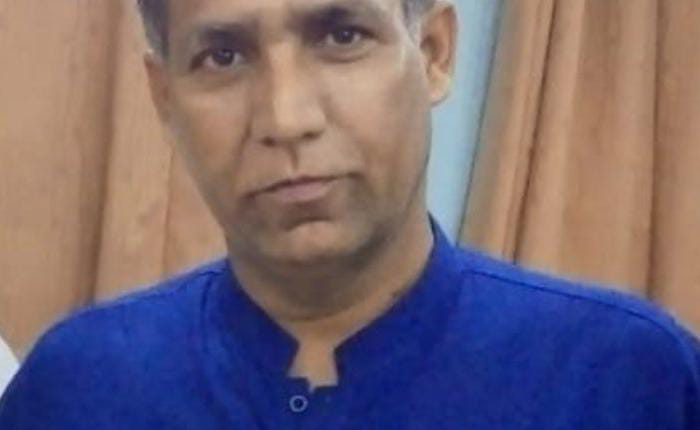By: Rahmatullah Buriro
Karachi/Hyderabad, Oct 2 – The Sindh government has announced a major relief initiative for the agriculture sector by providing free fertilizer to farmers under the Wheat Assistance Program starting next month. The scheme, valued at Rs 55.8 billion, aims to support wheat cultivation on an emergency basis, ensuring food security across the province.
According to Sindh Chief Minister Syed Murad Ali Shah, the program will benefit 411,408 farmers owning up to 25 acres of land. Under the package, the government will distribute 2,262,000 bags of DAP fertilizer and 4,525,492 bags of urea fertilizer. Each farmer will receive one bag of DAP and two bags of urea per acre.
The initiative has been launched under the Agriculture Policy 2018–2030, framed to modernize farming practices, strengthen food security, and uplift Sindh’s growers. The provincial leadership of the Pakistan People’s Party (PPP), led by Chairman Bilawal Bhutto Zardari and President Asif Ali Zardari, has termed the program an agriculture- and farmer-friendly move.
—
PPP’s Agricultural Legacy
The PPP has historically prioritized agriculture, considering it the backbone of Pakistan’s economy. From Zulfikar Ali Bhutto’s land reforms to Benazir Bhutto’s schemes for farmers, and later Asif Ali Zardari’s pro-grower incentives, the party has consistently pursued policies aimed at uplifting rural communities.
Now, under Bilawal Bhutto Zardari, PPP is once again focusing on strengthening food security and empowering small-scale farmers. Observers note that this fertilizer subsidy is not only an economic step but also a political reaffirmation of PPP’s roots in rural Sindh.
—
Challenges of Climate Change
Sindh’s agriculture is facing immense challenges due to climate change, water shortages, rising costs of inputs, and inconsistent market prices. The 2022 floods devastated crops, leaving thousands of farmers in debt. Even now, erratic weather patterns threaten wheat production.
Experts warn that without timely interventions, food security in Sindh could be at risk. Fertilizer subsidies, therefore, are seen as a short-term relief that must be complemented with long-term structural reforms in water management, seed development, and mechanization.
—
Farmers’ Concerns
Despite welcoming the subsidy, farmer associations remain cautious. They argue that unless the government also guarantees fair procurement prices for wheat, the farmers’ losses may continue.
Last year, many growers cultivated wheat despite rising fertilizer and seed prices, but the market did not reward them adequately. As a result, several switched away from wheat to vegetables or cash crops. This year, with fertilizer support, they expect not only better yields but also government-backed pricing mechanisms.
—
Transparency and Accountability
Provincial Minister for Agriculture Sardar Muhammad Bakhsh Mahar and Agriculture Secretary Muhammad Zaman Narejo have assured farmers that the program will be implemented transparently. Committees have been formed to monitor the distribution process, ensuring that only genuine farmers benefit.
Director General Agriculture Extension Munir Jumani stated:
> “The Agriculture Department is working day and night to ensure timely delivery of fertilizers. Transparency and efficiency remain our top priorities.”
This assurance is crucial, as previous subsidy schemes in Pakistan often suffered from corruption, political interference, and middleman exploitation. If Sindh succeeds in keeping this program transparent, it will mark a turning point in agriculture governance.
—
The Broader Picture: Food Security and National Economy
Agriculture contributes nearly 23% to Pakistan’s GDP and employs almost 40% of the workforce. Wheat, being the staple food crop, is central to both food security and political stability.
Sindh’s wheat production not only feeds its own population but also supplements shortages in Punjab and other provinces. Analysts suggest that if Sindh manages to boost wheat output this season, it could help reduce the country’s dependence on costly wheat imports, saving billions of rupees in foreign exchange.
—
Conclusion: A Timely but Testing Step
The Sindh government’s Wheat Assistance Program has been hailed as a bold and timely intervention. Yet, its success will depend on swift implementation, transparency, and fair pricing policies. If executed effectively, the initiative will not only uplift small farmers but also strengthen Pakistan’s fragile food security at a time of inflation and climate uncertainty.
In the words of Chief Minister Murad Ali Shah:
> “This is not just a subsidy; it is an investment in Sindh’s future, in our farmers, and in our food security.”
For the people of Sindh, and indeed for Pakistan, this program represents hope — hope that agriculture can be revived, food security can be ensured, and the farmer can once again become the backbone of the economy.

